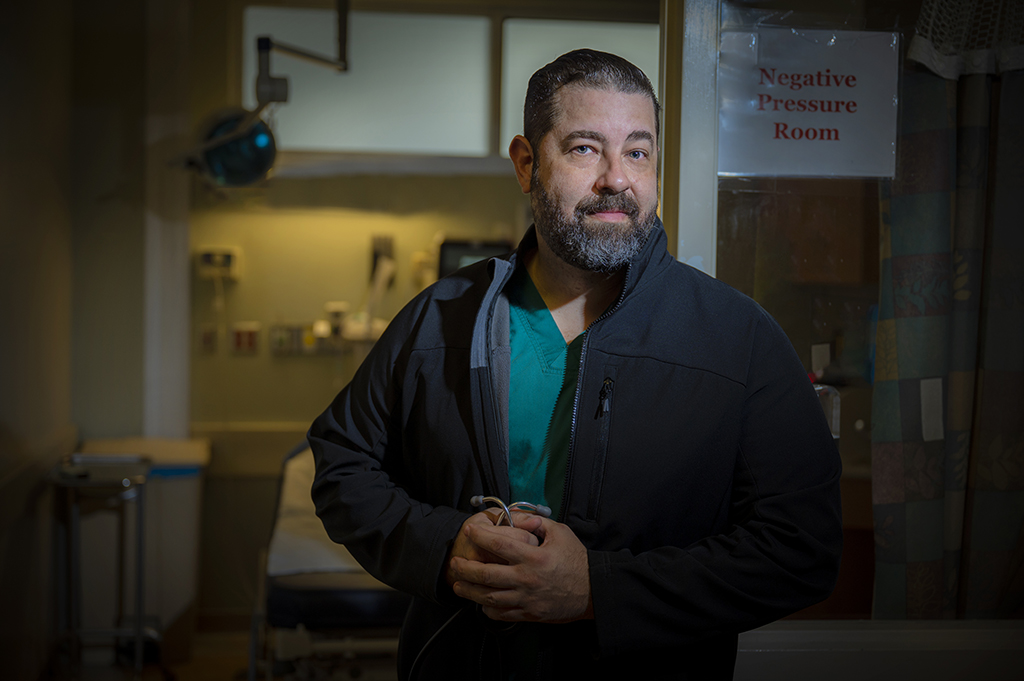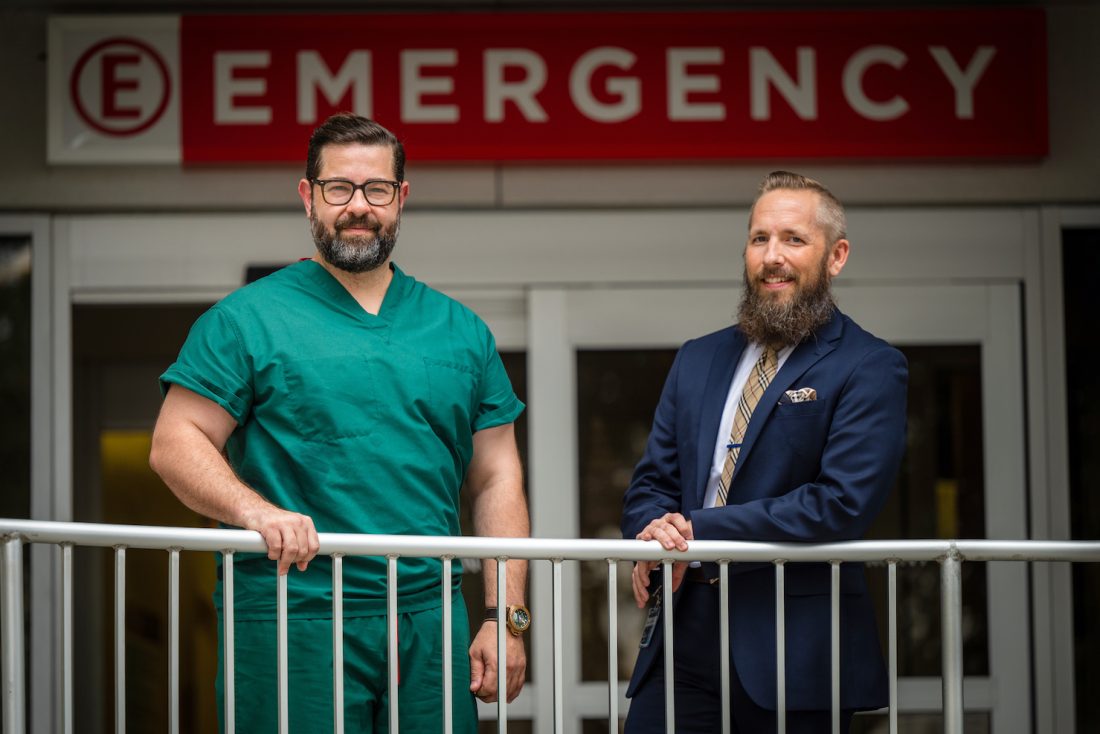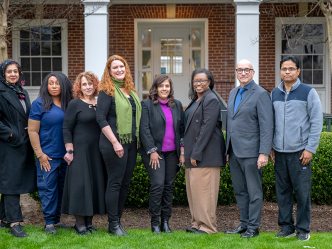Augusta University’s Master of Arts in Intelligence and Security Studies (MAISS) program will expand this fall to offer a third graduate certificate, this one in epidemiological intelligence.
The purpose of the new graduate certificate is to help train and educate local, state, federal and international organizations’ employees within the discipline of public health intelligence. It capitalizes on synergistic opportunities needed for optimal public health preparedness and response to current and future threats.
The certificate in epidemic intelligence program, an interdisciplinary endeavor connecting the MAISS program with the Master of Science in Epidemiology, is the brainchild of Amado Alejandro Báez, MD, vice chair of operational medicine, director of the Center of Operational Medicine and professor in emergency medicine and epidemiology at the Medical College of Georgia, and Craig Albert, PhD, director of the MAISS program.

Báez, who was recently appointed as a National Security Fellow with the President Truman National Policy Center, is also a co-director of the Master of Clinical and Translational Science program, advisor for the FBI Augusta and Atlanta offices, chief medical advisor for the Georgia Bureau of Investigation and a faculty member in the MAISS program. He is all about creating interdisciplinary collaborations to improve public health.
“The cool thing about this program is that it is a true interdisciplinary collaboration. We created this course to tie in security and epidemiology, and the target audience can easily be used for security and intelligence officers involved in one way or another in medical intelligence, activities, operations, epidemiology and public health intelligence,” Báez said.
“We’re trying to integrate research education with the practice we learn from our own personal strategic and operational experiences we translated into research and case studies that relate to the practice of epidemiology intelligence. Some of that has been highlighted in a couple of publications that we have written together, and then the idea is to integrate those real-world experiences into this educational program.”
The certificate program will be offered completely online and will be comprised of 15 credit hours spread out over five courses: Introduction to Intelligence Studies, Intelligence Collection, Intelligence Analysis, Medical Intelligence, Introduction to Epidemiology and Infectious Disease Epidemiology: Theory and Methods.

“The purpose of the program is to be integrative and collaborative across those disciplines of public health, epidemiology and intelligence studies. It’s also not just meant for faculty and students in those areas, but also to really bring together researchers so they can form a unique and collaborative research paradigm that incorporates public health, intelligence and epidemiology,” Albert said. “Our hope is that this program will bring students and faculty from different disciplines together to yield even higher research and integrated research approaches, and then hopefully give our students a competitive edge to land jobs at places like the CDC.”
This is not the first time Báez and Albert have collaborated together, having previously teamed up with graduate student Joshua Rutland on two publications. The first, “Human security as biosecurity: Reconceptualizing national security threats in the time of COVID-19,” was published in January 2021.
The trio then collaborated with Lance Hunter, PhD, and John Heslen, PhD, both from Pamplin College of Arts, Humanities, and Social Sciences, to write a new publication called “Epidemiological intelligence fusion centers: health security and COVID-19 in the Dominican Republic,” which was published in the Journal of Intelligence and National Security.
“That paper and the research associated with it were the groundwork for this certificate, and we hope that further curriculum will include a fully integrated concentration that focuses on public health, epidemiology and intelligence to that eventual leads to full master’s degree,” Albert said.
READ MORE: Faculty experts study international impact of epidemiological intelligence fusion centers
“Its very unique; there’s no other program out there like this,” Báez said. “What we’re hoping to do is show how the certificate connects with other master’s programs like the MAISS, a Master of Public Health, even the Master of Public Administration, here at AU and even outside — hopefully we can accept credit transfer. And the idea is to hopefully have the certificate create a niche for a dedicated master’s program in public health and epidemiology intelligence.”
Báez previously worked with graduates of the Epidemic Intelligence Service, a two-year post-doctoral training program offered by the Centers for Disease Control and Prevention, to help promote effective public health information.
“One of the things that COVID gave us was a broader understanding of the intersection between security services and public health and epidemiology. When I was running COVID, in Dominican Republic, we created an epidemiology fusion center, and it was a cool effort in the sense that I think for the first time, at least in my experience, we integrated security services, intelligence doctrines and principles with public health and epidemiology principles,” Báez said.
“This program is building off of that knowledge. We contributed to the creation of the best available evidence, so we’re not just repeating somebody else’s research, this is our actual fieldwork in Dominican Republic, translated into a research paper that Dr. Albert and I wrote, integrated into a course that’s integrated into certificate program that can later be used for other degrees.”
The program is now accepting applicants, and will welcome the first online students in the fall.
 Augusta University
Augusta University




